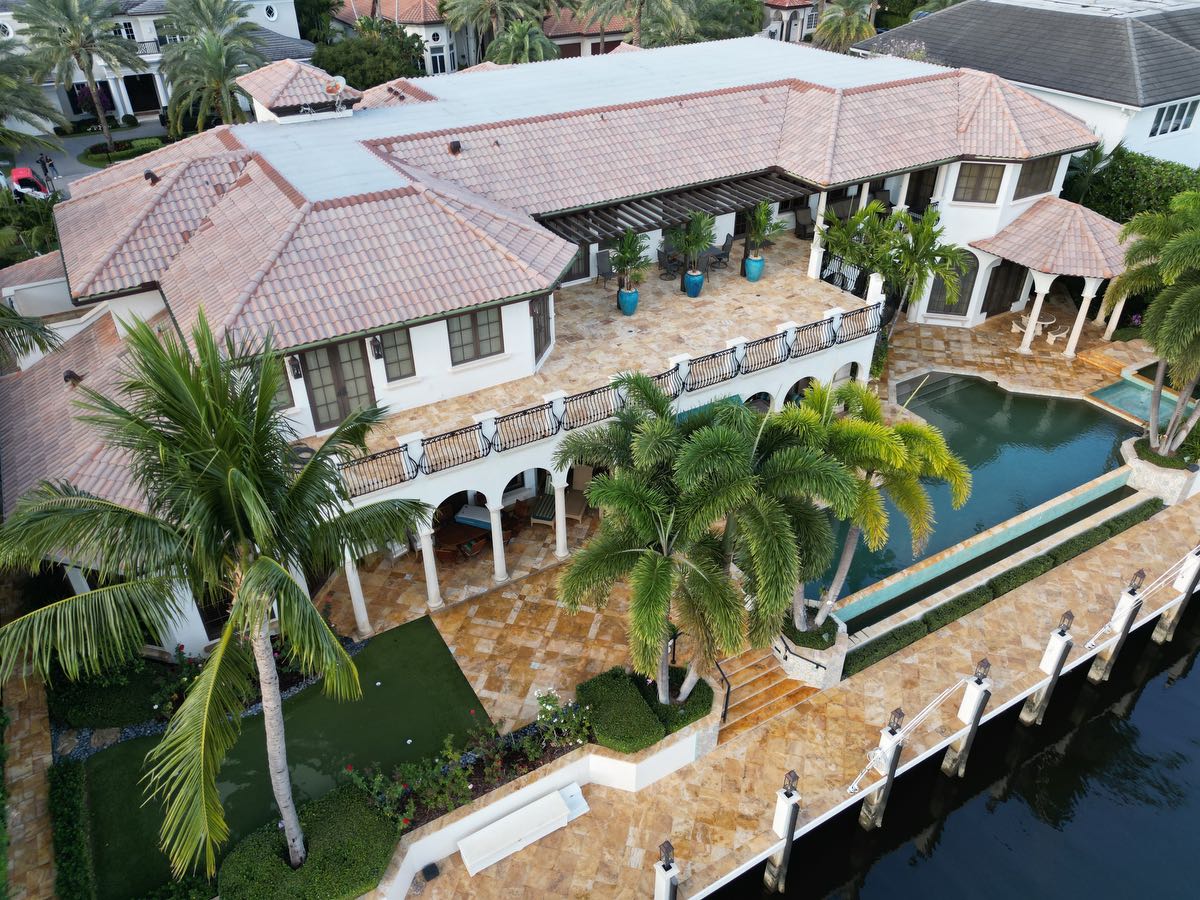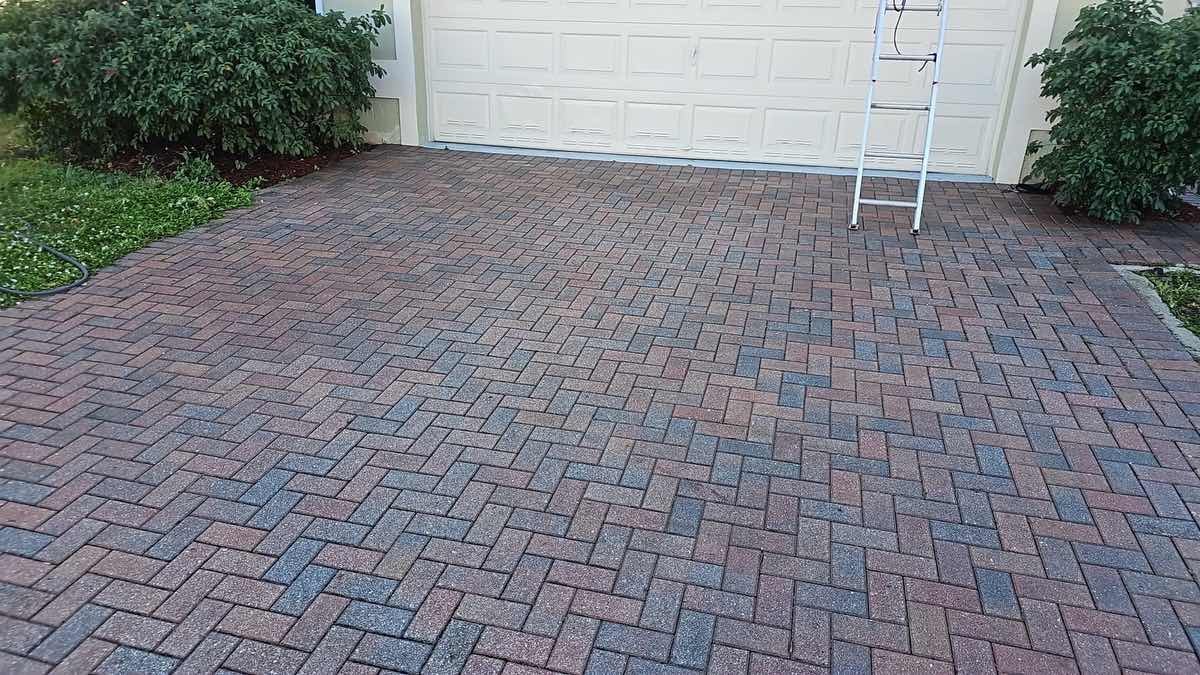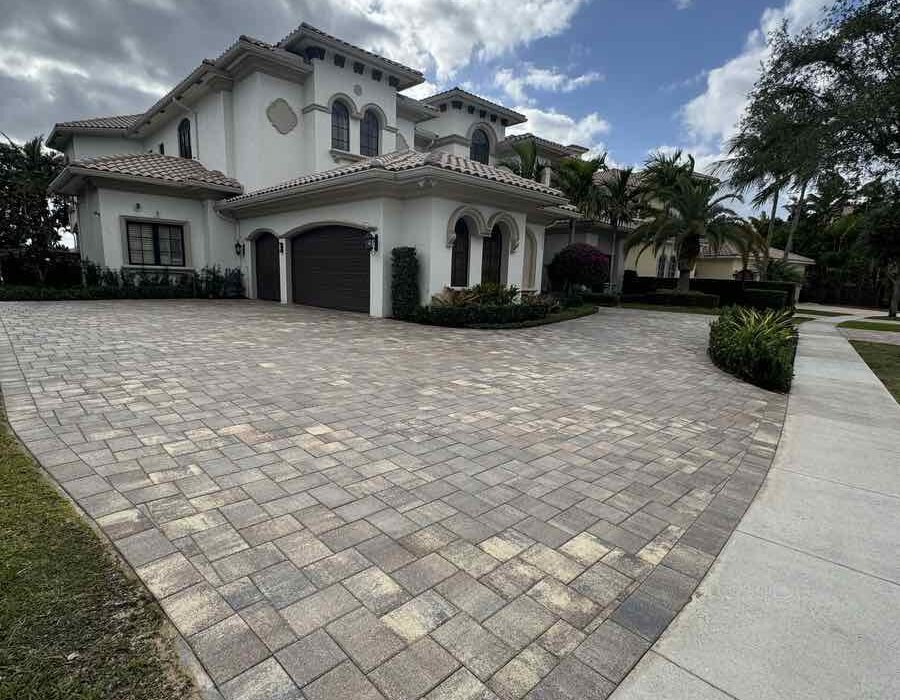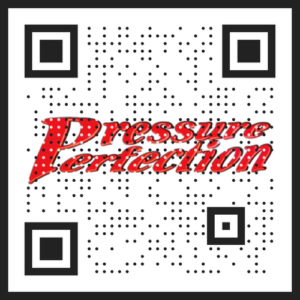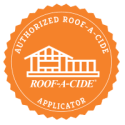Table of Contents
If you live in South Florida, you’ve likely experienced the difficulty of keeping the exterior of your home or business clean. In an attempt to find a solution, you may have come across various methods, such as pressure washing and power washing. This has probably left you wondering: “What is the difference between power washing and pressure washing?” These are two very different approaches to keeping your home’s exterior clean. Understanding the differences can help you make informed decisions about maintaining your property.
What is Pressure Washing?
In most cases, pressure washing is a term used to describe a method that utilizes a high-pressure water spray to remove dirt and environmental build-up. However, with Pressure Perfection, our unique system uses lower pressure combined with a high-volume water spray. This combination has proven to be highly effective at removing stubborn contaminants, including dirt, grime, mold, mildew, algae, and more, from various surfaces of your house or business. It is particularly effective in outdoor settings, revitalizing sidewalks, driveways, patios, decks, siding, and even fencing to restore their appearance to near original condition. Our company’s pressure washing system gets results while preserving the integrity of your home’s paint, stucco, and exterior finishes.
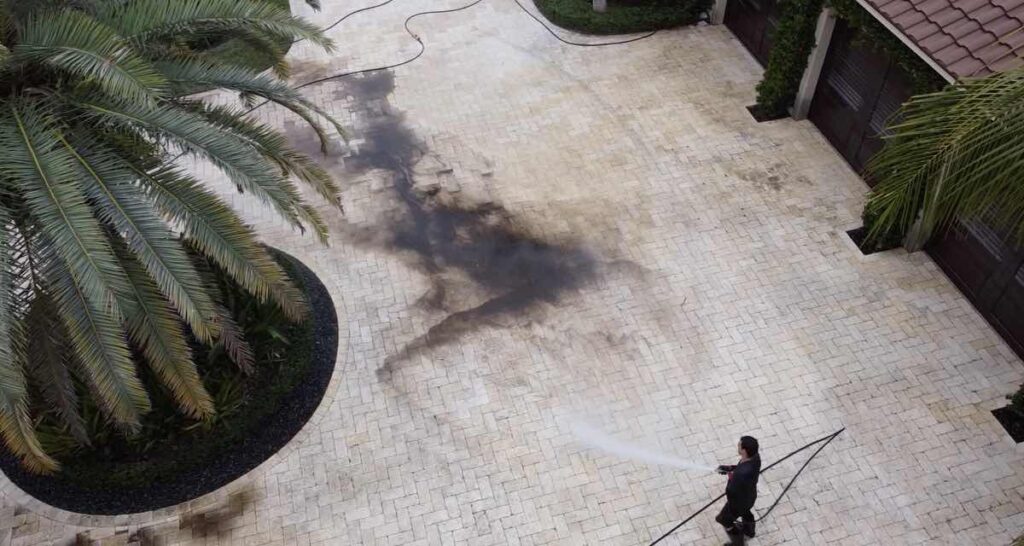
One of the most compelling attributes of pressure washing is its environmental friendliness. Our unique high-volume water system eliminates the need for chemical cleaners in many scenarios. This not only protects the surfaces being cleaned but also safeguards the surrounding landscape and reduces the potential harm to the ecosystem from runoff containing harsh detergents. Furthermore, the benefits of our High-Volume, Low-Pressure method rely on a strategic distribution of the water pressure. This gives our clients the benefit of a pressurized clean using less pressure.
Our pressure washing extends beyond mere aesthetics; it plays a crucial role in preventative maintenance. Regular cleaning of outdoor surfaces can prevent the build-up of harmful substances like mold and algae, which can cause wear over time. By removing these materials before they have the chance to penetrate deeply, pressure washing helps prolong the lifespan of these surfaces. As a result, homeowners may save a significant amount of money in long-term repair or replacement costs.
When Should You Use a Pressure Washer?
Pressure washers are versatile and can be used on a variety of surfaces. Common uses include:
- Driveways and Walkways: Remove dirt, algae, and mildew.
- Decks and Patios: Clean wood, concrete, and stone.
- Siding: Wash away grime from vinyl, brick, or stucco exteriors.
However, it’s important to know when not to use a pressure washer. Avoid using it on:
- Delicate Surfaces: Certain materials can be damaged by high pressure.
- Electrical Components: Water and electricity don’t mix.
- Window Cleaning: High pressure can break glass.
Pros and Cons of Pressure Washing
Like any service, pressure washing has its advantages and disadvantages.
Pros of Pressure Washing
- Efficient Cleaning: Quickly remove dirt and stains.
- Eco-Friendly: Uses water instead of harsh chemicals.
- Versatile: Suitable for various surfaces.
Cons of Pressure Washing
- Potential Damage: Improper use of extra high pressure can harm surfaces.
- Not Always Sufficient: May only remove some types of stains.
- Water Consumption: Uses a significant amount of water.
What is Power Washing?
Power washing is similar to pressure washing but includes one key element: heated water. By adding heat, combined with high pressure, stains like grease or oil can be blasted away. This theory is based on the belief that hot water is more effective. The addition of hot water in power washing could bring several advantages. First, heated water can break down grease and oil more effectively than cold water. This makes it a valid choice for cleaning driveways, garages, and industrial areas where such contaminants are common. The heat also helps kill bacteria and mold, providing a sanitized clean essential for specific applications like restaurants, hospitals, and other public facilities.
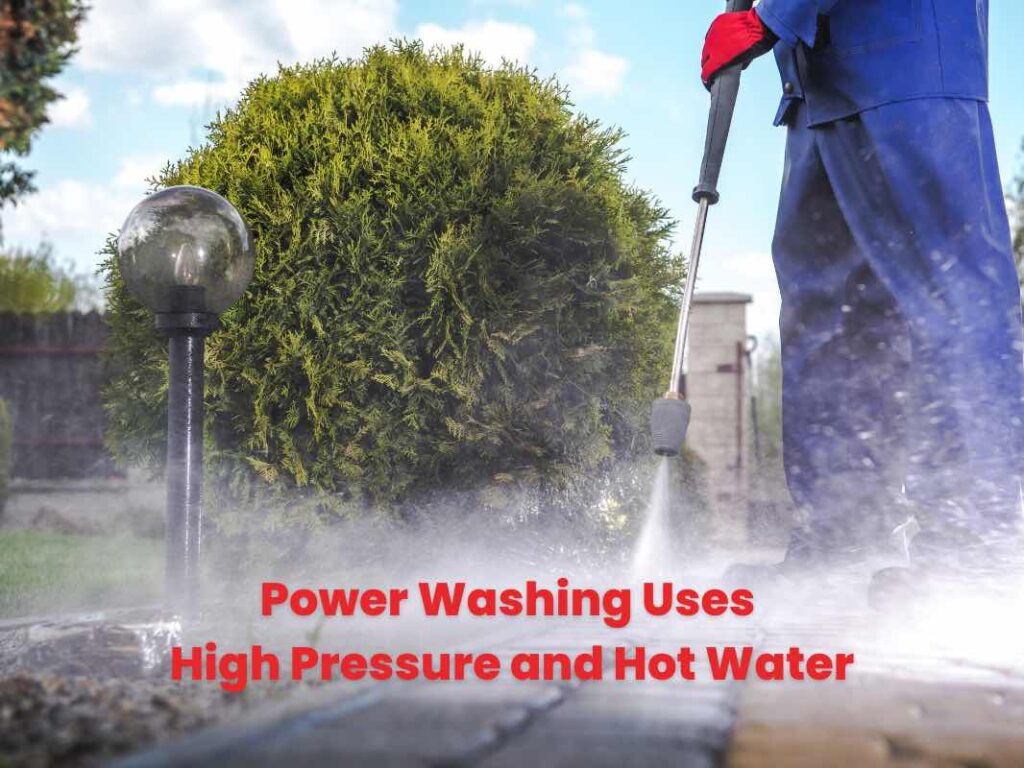
Moreover, power washing can help remove chewing gum, graffiti, and other persistent substances from surfaces. Its potential to clean at a deeper level ensures that any residues left behind are thoroughly eliminated, which is why it’s often employed in heavy-duty cleaning tasks. For surfaces like concrete, asphalt, and brick, which can harbor deep-seated grime, power washing provides a level of cleanliness that traditional pressure washing alone might not achieve.
This enhanced cleaning power also means that power washing can reduce the need for chemical cleaners, making it an eco-friendly option. By relying on the combined action of high pressure and hot water, this method could minimize environmental impact while still achieving acceptable results.
What Are the Ideal Uses for a Power Washer?
- Removing Oil and Grease Stains: Ideal for driveways and garage floors, as heated water effectively breaks down sticky substances.
- Cleaning Heavy Equipment and Vehicles: Perfect for dissolving and washing away tough grime from machinery and vehicles.
- Preparing Surfaces for Painting or Refinishing: Ensures a clean and smooth base by stripping away old paint and debris, enhancing the adherence and longevity of new coatings.
- Sanitizing Areas: Hot water kills bacteria and algae more effectively, making it suitable for outdoor patios, playgrounds, and pool surrounds.
- Deep Cleaning Concrete and Stone Surfaces: Loosens dirt, algae, or moss from hard surfaces, restoring their appearance.
Note: Power washing combines high pressure with hot water and should be used cautiously to avoid damaging delicate surfaces. It is not advised for some painted surfaces or certain exterior finishes.
Power Washing Advantages and Disadvantages
Advantages of Power Washing
- Strong Cleaner: Efficiently removes stubborn stains and grime.
- Expedient: Saves time on cleaning compared to manual methods.
- Comprehensive: Kills bacteria, mold, and algae, enhancing sanitation.
- Versatile: Can be used to clean various hard surfaces.
- Sustainable: Eco-friendly, reducing the need for chemicals.
Disadvantages of Power Washing
- Higher Cost: More expensive than pressure washing.
- Energy Consumption: Uses additional energy to heat water.
- Potential Surface Damage: More powerful, hence higher risk of damage.
Pressure Washing vs. Power Washing: Cost Comparison
You might be wondering about the cost difference between these services. For general household needs, pressure washing is often sufficient and more cost-effective. Generally, power washing is slightly more expensive due to the added complexity of heating the water. However, both methods are cost-effective ways to maintain your home’s exterior.
Should You DIY or Hire a Pro?
Deciding whether to tackle pressure washing yourself or hire a professional like Pressure Perfection depends on several factors:
The Pros of DIY:
- Cost Savings: The most compelling reason for DIY is to save money. Renting equipment can be less expensive than hiring a professional service, with rental costs typically ranging from $50 to $100 per day.
- Flexibility: Doing it yourself allows you to work at your own pace and on your schedule. This can be particularly appealing for those with busy or unpredictable timetables.
- Satisfaction: Completing a task with your own hands brings a sense of accomplishment and satisfaction. For some, this is as valuable as the monetary savings.
The Cons of DIY:
- Risk of Damage: Without the proper experience, there’s a higher risk of damaging your property. High-pressure water can harm surfaces, strip paint, or even cause water intrusion into your home.
- Safety Concerns: DIY pressure or power washing poses safety risks. Handling high-powered machines can lead to injuries from the force of the water or burns from hot water used in power washing.
- Equipment and Technique: Renting does not guarantee access to the best equipment or detergents. Additionally, effective washing requires specific techniques that professionals master through experience.
Conclusion: What is the difference between power washing and pressure washing?
Ultimately, the peace of mind that comes with knowing a job will be done safely and effectively by a professional makes a huge difference. The time you save and the results you achieve when hiring professionals far outweigh the additional cost of cleaning your house or business. Hiring Pressure Perfection gets you:
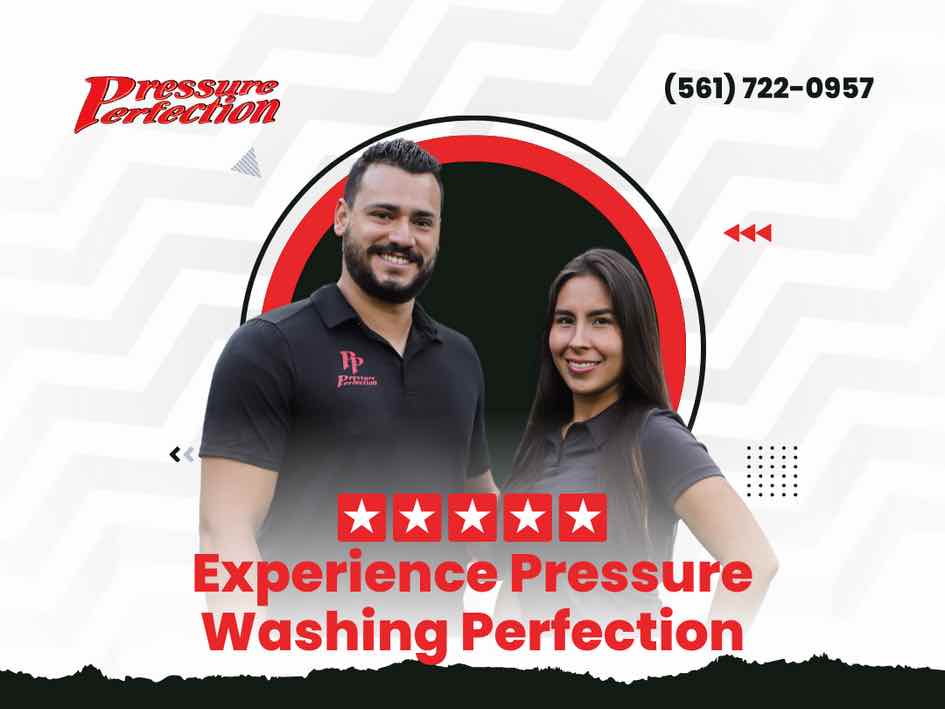
- Expertise and Efficiency: Pressure Perfection has years of experience, which means we can clean more effectively and efficiently than the average homeowner. We also understand how to tackle different stains on various surfaces without causing damage.
- Better Equipment: We provide professional services with industrial-grade equipment and cleaning solutions that are more powerful and often more eco-friendly than those available for rental.
- Safety and Insurance: Our reputable company carries insurance that covers any accidental damages. Hiring professionals also eliminates the personal risk of injury.
Understanding the difference between power washing and pressure washing can help you choose the right service for your needs. With our unique high-volume, low-pressure cleaning system, you get many of the benefits of both methods without all the cons.
Whether you need a simple clean or a more intensive wash, Pressure Perfection is here to help. Our professional team offers expert pressure washing and roof cleaning services throughout South Florida. We also offer fast commercial pressure washing services. Feel free to contact us if you have any questions!
Are you ready to see the transformative effects of our services? Get A Free Pressure Washing Quote today and let Pressure Perfection bring new life to your property!

